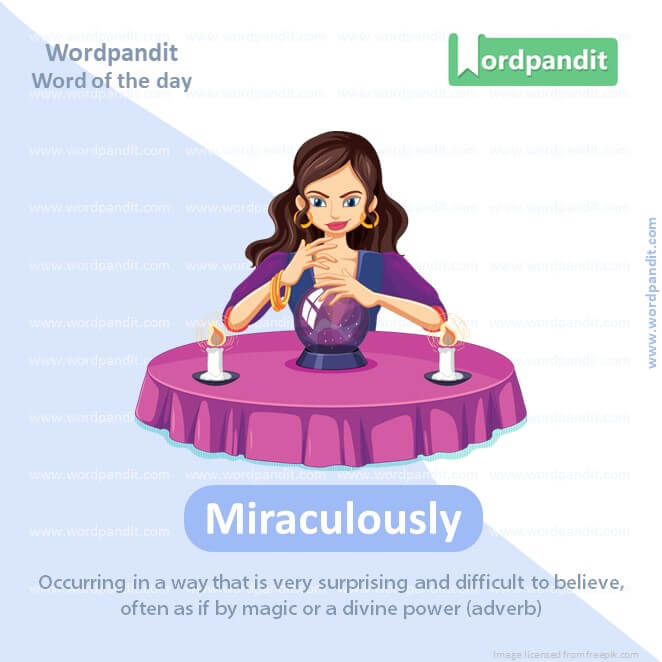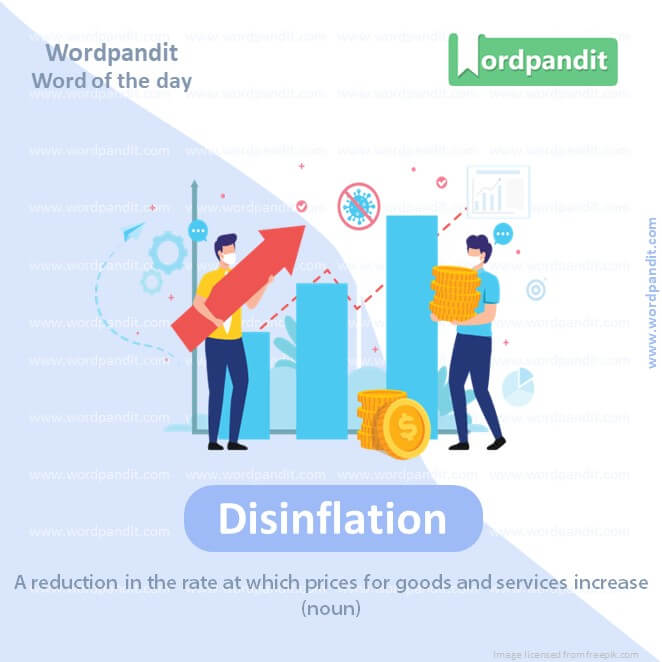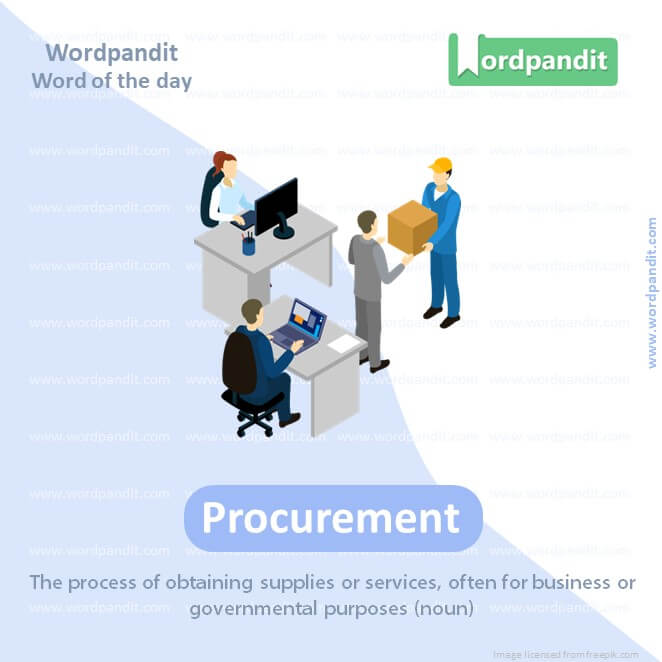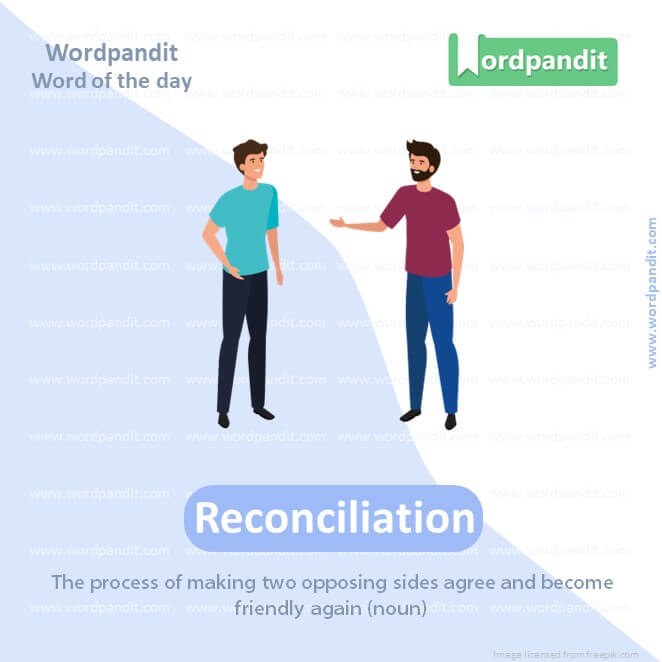Daily Vocabulary Words: List of Daily Used Words in Leading International Newspapers
Hi there. Welcome to this special section @ Wordpandit.
Our endeavour here is very simple: to highlight important daily vocabulary words, which you would come across in leading newspapers in the country. We have included the following newspapers in our selection:
• The New York Times
• The Washington Post
• Scientific American
• BBC
• The Guardian
• Psychology Today
• Wall Street Journal
• The Economist
We are putting in extensive work for developing your vocabulary. All you have got to do is be regular with this section and check out this post on a daily basis. This is your repository of words that are commonly used and essentially, we are posting a list of daily used words. Hence, this has significant practical application as it teaches you words that are used commonly in leading publications mentioned above.
Visit the website daily to learn words from leading international newspapers.

WORD-1: Miraculously
CONTEXT: The economic news in 2023 was almost miraculously good.
SOURCE: New York Times
EXPLANATORY PARAGRAPH: Imagine you have a toy that’s broken, and you think it can never be fixed. But one day, you wake up, and it’s perfectly fine as if by magic! That’s what “miraculously” means. It’s like something amazing happening when we least expect it, almost like a magic trick that makes us super happy and surprised.
MEANING: Occurring in a way that is very surprising and difficult to believe, often as if by magic or a divine power (adverb).
PRONUNCIATION: mir-uh-kyoo-lus-lee
SYNONYMS: astonishingly, amazingly, wondrously, remarkably, extraordinarily, unbelievably, magically
USAGE EXAMPLES:
1. The patient miraculously recovered from the illness overnight.
2. Miraculously, the lost kitten found its way home after being gone for a month.
3. The team miraculously won the game in the last second.
4. She miraculously found her ring in the sand at the beach.

WORD-2: Disinflation
CONTEXT: And the usual suspects — inflation perma-bears, political enemies of the Biden administration and economists who wrongly predicted that disinflation would require mass unemployment.
SOURCE: New York Times
EXPLANATORY PARAGRAPH: Imagine you have a balloon that you’re filling with air, and it gets bigger and bigger. But then, you start to let out a little bit of air, so it grows slower but doesn’t go flat. “Disinflation” is like that but with prices. If things were getting more expensive really fast, and then they start to get more expensive slower, that’s disinflation.
MEANING: A reduction in the rate at which prices for goods and services increase (noun).
PRONUNCIATION: dis-in-flay-shun
SYNONYMS: price stabilization, slowdown in inflation, economic cooling, moderation of price increases, deflationary slowing
USAGE EXAMPLES:
1. The government’s policy led to disinflation, making the cost of living increase more slowly.
2. Disinflation helped families save more money as prices didn’t rise as fast.
3. Economists observed disinflation in the market last quarter.
4. The central bank aimed for disinflation to stabilize the economy.
WORD-3: Spurious
CONTEXT: The official numbers wouldn’t be sufficiently adjusted to reflect this effect, leading to a spurious bump in measured inflation — a bump that will vanish in the months ahead.
SOURCE: New York Times
EXPLANATORY PARAGRAPH: Imagine you have a box of crayons, and you find one that looks like a brand you know, but it doesn’t color right and breaks easily. It’s not really from the brand it looks like; it’s a fake or not real crayon. “Spurious” is a word we use when something is not what it seems to be, like the fake crayon. It means something is false or not genuine.
MEANING: Not being what it appears to be, false or fake (adjective).
PRONUNCIATION: spyoo-ree-us
SYNONYMS: false, bogus, fake, counterfeit, fraudulent, deceptive, sham
USAGE EXAMPLES:
1. The detective discovered the evidence was spurious.
2. They sold spurious designer bags as if they were real.
3. The rumor was found to be spurious and without any truth.
4. Many spurious claims were made about the product’s effectiveness.
WORD-4: Exaggerating
CONTEXT: There are reasons the bureau measures housing costs this way, but there are also reasons to believe that in recent years that number has become misleading, distorting and exaggerating estimates of overall inflation.
SOURCE: New York Times
EXPLANATORY PARAGRAPH: Imagine you caught a small fish, but when you tell your friends, you say it was HUGE! You’re making the fish story bigger and more exciting than it really was. That’s what “exaggerating” means. It’s when we tell a story but make it sound way more dramatic or important than it actually is.
MEANING: Describing something as larger, better, worse, or more important than it actually is (verb).
PRONUNCIATION: ig-zaj-uh-ray-ting
SYNONYMS: overstating, amplifying, embellishing, inflating, magnifying, overemphasizing
USAGE EXAMPLES:
1. He was exaggerating when he said he could run faster than a car.
2. She tends to exaggerate her role in the project’s success.
3. The story of the adventure was exaggerated to sound more thrilling.
4. They were exaggerating the difficulty of the homework assignment.
WORD-5: Mind-numbing
CONTEXT: If you find all of this a bit mind-numbing, let me tell you a secret — so do I, even though this is supposed to be my field.
SOURCE: New York Times
EXPLANATORY PARAGRAPH: Imagine sitting down and listening to the same boring song over and over for hours. It makes you feel so bored that you can’t think or want to do anything else. That’s what “mind-numbing” means. It’s when something is so boring or repetitive that it makes your brain feel like it’s not working.
MEANING: So dull or repetitive as to make one unable to think or feel interested (adjective).
PRONUNCIATION: mynd-num-ing
SYNONYMS: boring, tedious, dull, monotonous, uninteresting, dreary, soporific
USAGE EXAMPLES:
1. The lecture was so mind-numbing that I couldn’t concentrate on what was being said.
2. Sorting through the files became a mind-numbing task after a few hours.
3. He found the long drive on the straight highway to be mind-numbing.
4. Watching the same commercial over and over again is mind-numbing.
WORD-6: Brutalized
CONTEXT: Many Palestinians in Israel were filled with revulsion on Oct. 7 as Hamas attacked the Israeli towns near the border and murdered and brutalized their inhabitants.
SOURCE: New York Times
EXPLANATORY PARAGRAPH: Imagine you have a soft, beautiful garden that you love and take care of every day. But then, someone comes and walks all over the flowers, breaks the stems, and leaves the garden in a terrible state. This action of causing harm and damage is similar to “brutalized.” It means to treat someone or something in a very harsh and violent way, causing great distress or damage.
MEANING: Treated in a cruel and violent manner (verb).
PRONUNCIATION: broo-tuh-lized
SYNONYMS: abused, battered, beaten, mistreated, manhandled, assaulted, harmed
USAGE EXAMPLE:
1. The report revealed that the prisoners were brutalized by their captors.
2. The peaceful protest turned violent, and many were brutalized by the police.
3. The animal shelter rescues animals that have been brutalized and neglected.
4. Stories of brutalized communities in the conflict zone prompted international outrage.

WORD-7: Procurement
CONTEXT: American estimates suggest that the Chinese production and procurement enterprise is five to six times more efficient and faster than that of the Americans.
SOURCE: New York Times
EXPLANATORY PARAGRAPH: Imagine you have a lemonade stand, but first, you need lemons, sugar, and water. Going out and getting these things so you can make lemonade is like procurement. It’s a fancy word for finding and getting all the stuff you need to do something or make something.
MEANING: The process of obtaining supplies or services, often for business or governmental purposes (noun).
PRONUNCIATION: proh-KYOOR-muhnt
SYNONYMS: Acquisition, Purchasing, Buying, Obtaining, Sourcing, Securing, Gathering
USAGE EXAMPLES:
1. The department is responsible for the procurement of office supplies.
2. They improved their procurement process to save money.
3. Procurement of quality materials is crucial for the project.
4. The government has strict rules for procurement.

WORD-8: Embrace
CONTEXT: We need to embrace a culture of talent identification/ maximisation.
SOURCE: New York Times
EXPLANATORY PARAGRAPH: Imagine giving someone a big, warm hug because you’re happy to see them or because you want to show them you care. That hug is like an embrace. But embrace can also mean accepting something happily, like if you were excited to start playing a new sport or trying a new food.
MEANING: To hold someone closely in one’s arms, or to accept or support something willingly (verb).
PRONUNCIATION: em-BRAYSS
SYNONYMS: Hug, Clasp, Cuddle, Accept, Welcome, Adopt, Receive
USAGE EXAMPLES:
1. They shared a long embrace after being apart for so long.
2. He decided to embrace the new opportunity.
3. The community was quick to embrace the new park.
4. She embraced her friend warmly.
WORD-9: Recognition
CONTEXT: the Israeli government must remove discriminatory policies against them and stop fighting recognition of their Palestinian identity.
SOURCE: New York Times
EXPLANATORY PARAGRAPH: Imagine drawing a beautiful picture and later seeing it displayed in your school hallway with your name on it for everyone to admire. You feel happy and proud because your talent and hard work are acknowledged. This feeling and act of being acknowledged or identified is called “recognition.” It means when someone’s achievements, rights, or status are acknowledged and respected.
MEANING: Acknowledgment or identification of something’s existence, validity, or legality (noun).
PRONUNCIATION: rek-uhg-nish-uhn
SYNONYMS: acknowledgment, identification, acceptance, appreciation, validation, confirmation
USAGE EXAMPLE:
1. She received recognition for her contributions to the project.
2. The artist gained recognition after his exhibit was featured in a major gallery.
3. His long service to the company was finally given the recognition it deserved.
4. The new policy includes recognition of same-sex marriages.

WORD-10: Reconciliation
CONTEXT: one that would signify a significant step toward reconciliation and an end to the cycle of violence.
SOURCE: New York Times
EXPLANATORY PARAGRAPH: Imagine two friends who had a big argument and stopped talking to each other. But after some time, they decide to meet, talk about their misunderstandings, and forgive each other. They become friends again. This process of making peace and restoring friendly relations is called “reconciliation.” It’s when people or groups find a way to overcome their differences and get back together in harmony.
MEANING: The process of making two opposing sides agree and become friendly again (noun).
PRONUNCIATION: rek-uhn-sil-ee-ay-shuhn
SYNONYMS: settlement, resolution, agreement, harmonization, accord, understanding
USAGE EXAMPLE:
1. The reconciliation between the two families healed old wounds.
2. After months of negotiation, the reconciliation agreement was signed.
3. The peace talks aimed for reconciliation among the warring factions.
4. Financial reconciliation was necessary to correct the accounting errors.
Vocabulary List English
In the vibrant marketplace of language learning, a ‘vocabulary list English’ is akin to a beautifully stocked grocery list – a tool that equips learners with basic ingredients necessary for fluent communication. However, absorbing the ‘vocabulary list English’ proficiently requires more than mere memorization; it calls for an informed and strategic method of learning.
The initial step towards mastering ‘vocabulary list English’ involves adopting an interactive approach. Instead of just reading and revising, use flashcards or digital memory tools to make the process more engaging. Such modes of learning not only retain interest but also boost retention and comprehension.
When learning ‘vocabulary list English’, practice is a fundamental element. Use these words in routine conversations, emails, or social media posts. The more frequently you use the words, the swiftly their usage becomes second nature.
A crucial part of understanding ‘vocabulary list English’ lies in knowing the context. Simply knowing a word’s meaning isn’t enough; you must know how it’s used in different situations. Reading a variety of materials, from fiction and newspapers to blogs and digital content, offers insight into the practical application of these words, deepening your understanding.
Furthermore, it’s vital to frequently revise ‘vocabulary list English’. Call back to what you’ve learned and give it another run-through. This habit strengthens memory retention and enhances the likelihood of the words being accessible when needed.
In conclusion, mastering ‘vocabulary list English’ is achieved through a blend of engaging tools, active practice, contextual understanding, and regular revision. These strategies, combined, can make the task of mastering ‘vocabulary list English’ a less overwhelming and more rewarding journey. As you venture into this process, you grow and expand your English vocabulary, achieving a heightened level of fluency and confidence in your English communication abilities.







